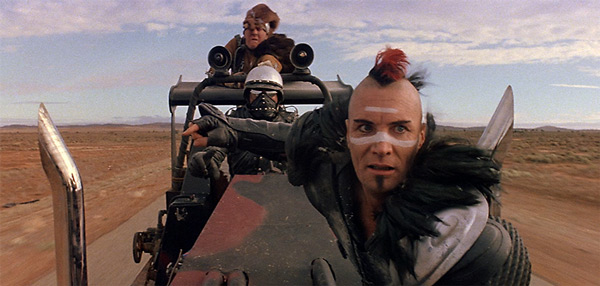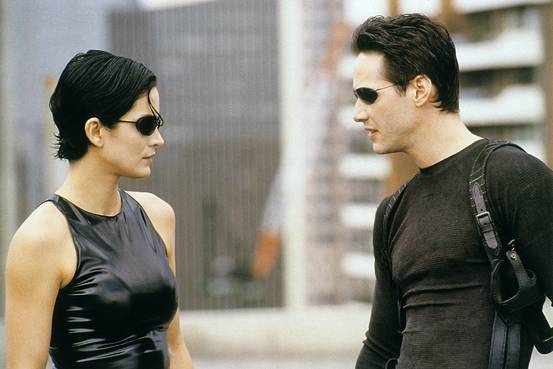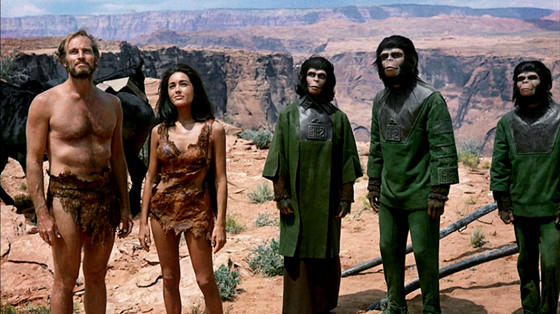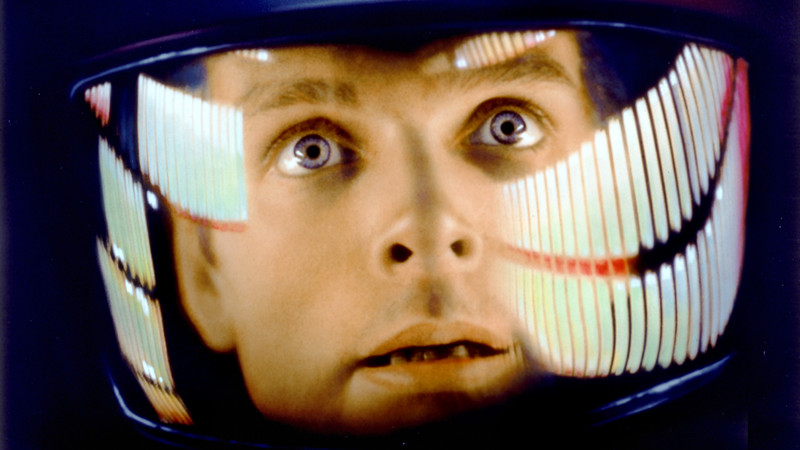6. Mad Max 2: The Road Warrior (George Miller, 1981)

Comfortably sitting right next to “Aliens” and “T2” in the pantheon of sequels that somehow managed to up the stakes and run rings around their predecessors, Aussie writer-director George Miller’s gritty actioner sees heroic loner Max Rockatansky (Mel Gibson) travel across the dusty wasteland of the Australian Outback in a never-ending search for fuel.
In conversation with Oscar-winning Mexican director Guillermo del Toro, Cameron sung the praises of “Road Warrior”, declaring himself a fan of postapocalyptic science fiction and citing Miller’s pulse-pounding road film as both its golden standard and a direct influence on his 1984 breakout film. “I love that genre, a heroic fantasy with the lonely hero, who rejects the call and then accepts it, is transformed… For me, “Road Warrior” is classic Joseph Campbell”. This unhinged and riveting futuristic parable gives welcoming audiences plenty of bang for their bucks and will not disappoint diehard fans of Cameron’s actioners (“T2”, “Aliens”).
7. The Matrix (Lilly & Lana Wachowski, 1999)

The Wachowskis burst onto the scene with a first-rate blockbuster that single-handedly brought trench coats, wraparound shades, and black leather back in style at the turn of the millennium while leaving an undeniable imprint on popular culture as we know it.
The concept of parallel realities and simulations was not exactly uncharted territory by the time Neo chose to take the red pill and do karate chops circa 1999, but to call “The Matrix” a complete game-changer would be the understatement of the century. Cameron touted Wachowski’s creation as one of the “most profoundly fresh sci-fi films ever made”, although he argues it might be indebted to his 1984 futuristic neo-noir. “I’m fine with noticing little snippets of “Terminator” DNA in it, in fact, I’m flattered because I kicked the ball down the field and somebody else took it and ran with it.” The “Avatar” director joked that he doesn’t rule out riffing on something from “The Matrix” in one of his future projects. “I think that’s how it works; we inspire each other as artists to go farther and to think of new things based on ideas that are in the zeitgeist.”
8. Planet of the Apes (Franklin J. Schaffner, 1968)

Cited by the “Terminator” director as one of the touchstone movies he repeatedly watched during his teenage years and inspired him to create, Franklin J. Schaffner’s original “Apes” movie remains one of sci-fi’s purest cinematic delights. Capped off by one of the greatest pull rugs ever, this 1968 space epic laces its satirical jabs with genuine menace, following the endeavors of a space traveler upon his arrival in a pseudo-medieval planet run by simians.
As early as 1994, Cameron was asked to executive produce an “Apes” movie that would take place thirty years later after the events of the ’68 original, featured a new group of astronauts in the ape-dominated future and even brought Charlton Heston back into the fold. Peter Jackson was set to direct with long-time collaborator Arnold Schwarzenegger attached to the film as well. However, things were ultimately not meant to be, with the New Zealander turning down the offer to instead develop “Lord of the Rings” and Cameron trotting over to greener pastures with the record-smashing mega-hit “Titanic”.
9. Blade Runner (Ridley Scott, 1982)

Artificial intelligence, the blurred distinction between man and man-made machines, and our uneasy relationship with technology are all core underpinnings that continue to ripple across James Cameron’s oeuvre.
Perhaps no film has addressed these complex moral dilemmas with such heart-stopping clarity as Ridley Scott’s watershed neo-noir, a long-standing mainstay in pop culture that wielded an insurmountable influence on the aesthetic evolution of sci-fi movies with its smog-choked vision of 2019 Los Angeles.
Cameron had a chance to express his admiration for Ridley Scott during a conversation featured in the AMC series, in which he admitted he always wanted to be him when he grew up. “‘Blade Runner” was a formative film for me, it came out when I was writing “Terminator”. Here was this beautiful film,” explained Cameron. “I don’t think I aspired to be as artistic as you were on “Blade Runner” when I did “Terminator”, but it was definitely in my mind.” Cameron recently told Vulture that he will stand in line for any Ridley Scott movie, even a not-so-great one, because he always learns something from him.
10. 2001: A Space Odyssey (Stanley Kubrick, 1968)

There is little to add about what’s already been universally codified about Stanley Kubrick’s intergalactic epic, at once a revelatory window into the past and a speculative journey into our future that has managed to beguile viewers for the past half century. The movie, which grapples with AI-human relations, interstellar travel, the evolution of humanity, and our place in the cosmos, had an enormous impact on many aspiring filmmakers at the time, including a 13-year-old Canadian by the name of James Cameron who swears to be have seen it up to 18 times during its theatrical run.
“I remember being shaken by the majesty of it; as a work of art in every sense,” he told “Inception” director Christopher Nolan in the AMC series. “Everybody thinks about it as a space drama, but at its core, it’s about artificial intelligence. I mean, HAL will probably exist in our lifetime.”
Though he later conceded that he finds the movie a little bit too sterile in the emotional department for his taste, the mastermind behind “Aliens” spoke highly of Stanley Kubrick: “I remember going with a great sense of anticipation to each of his films thinking: ‘Can he pull it off and amaze me again?’ And he always did,” he added. “The lesson I learned from him was, never do the same thing twice.” That’s certainly high praise coming from one of the biggest trendsetters in Hollywood history.